In Foreign Gardens
---
Verdi's "O Patria Mia / Oh, My Dear Country," From the Opera "Aida."
IGiuseppe Verdi wrote "Aida" for the opening of a new opera house in the Egyptian capital of Cairo in 1871, which coincided with festivities around the opening of the Suez Canal. The construction of this canal greatly indebted Egypt to Europe, reinforcing British and French influence over the country that began with Napoleon's military expedition to Egypt in 1798. Napoleon, suggests a scholar such as Edward Said in "Culture and Imperialism", staged Egypt's "antiquity, its wealth of associations, cultural importance, and unique aura for a European audience," an audience with an imperial gaze.
The "archeological revolution for which the Orient was a theater" came with famous discoveries that left tombs open and emptied out with the content shipped to European museums where it helped to expand "imaginary geographies" and created exotic desires. Tales of unusual pleasures and exotic promises mixed with increased, but incomplete information, and the flexing of imperial powers to confirm Egypt as a distant, culturally and religious "Other."Verdi, who never traveled to Cairo, conceived "Aida," said Said, as an "imperialist 'article de luxe'" in Europe and staged it in an Egypt defined and mainly controlled by foreign European powers for a mostly European audience.
For this video, I asked the Chinese Soprano Li Mingming to sing 'O patria mia' at the Wilhelma, a former Stuttgart Palace created in the mid-19th century by King Wilhelm I of Württemberg. The architecture was informed by Orientalist ideas and built in the so-called Moorish Revival style, echoing the Alhambra. The expertise gained in studying foreign cultures, lands and people was not only instrumental in colonial quests and conquests but also influenced European self-understanding and its taste formations, for which this Italian opera and the German architectural ensemble in Stuttgart became examples par excellence.
Verdi's "Aida" remains one of the most-ever played operas in the world; Wilhelma has survived two world wars and has expanded and morphed into an extensive botanical and a zoological garden. Unfortunately, contemporary Egypt drags itself from bloody revolution to counter-revolution, from military dictatorship to military dictatorship with young and old people losing their lives over irreconcilable notions of justice, freedom and the place of religion and the arts.
ps:
Refering to Verdi's text, I hope that all Egyptian and Not-Egyption (Syrians etc. ) can see their dear country soon again in a peacefull and just state.
(text was edited - corrected)
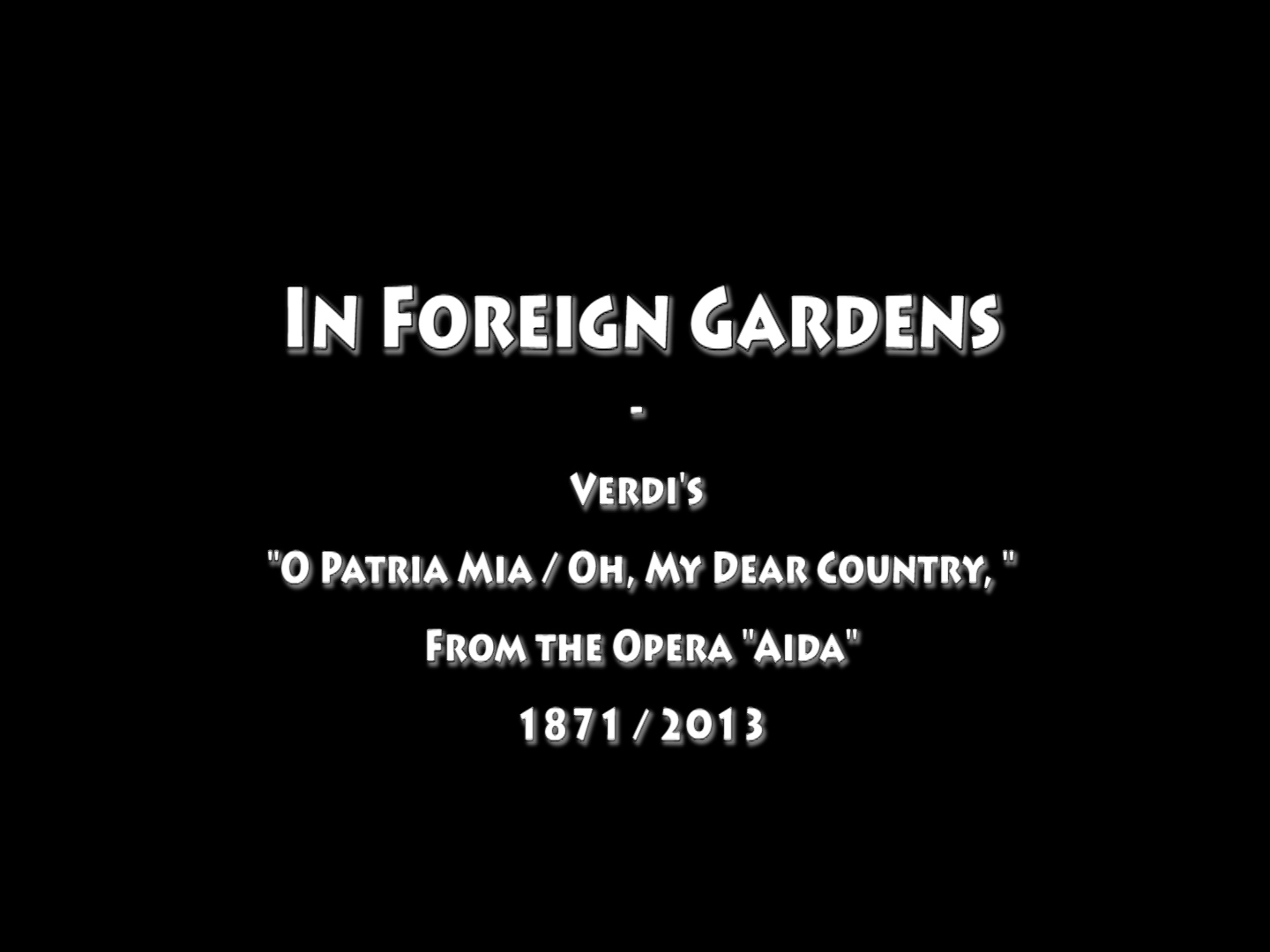
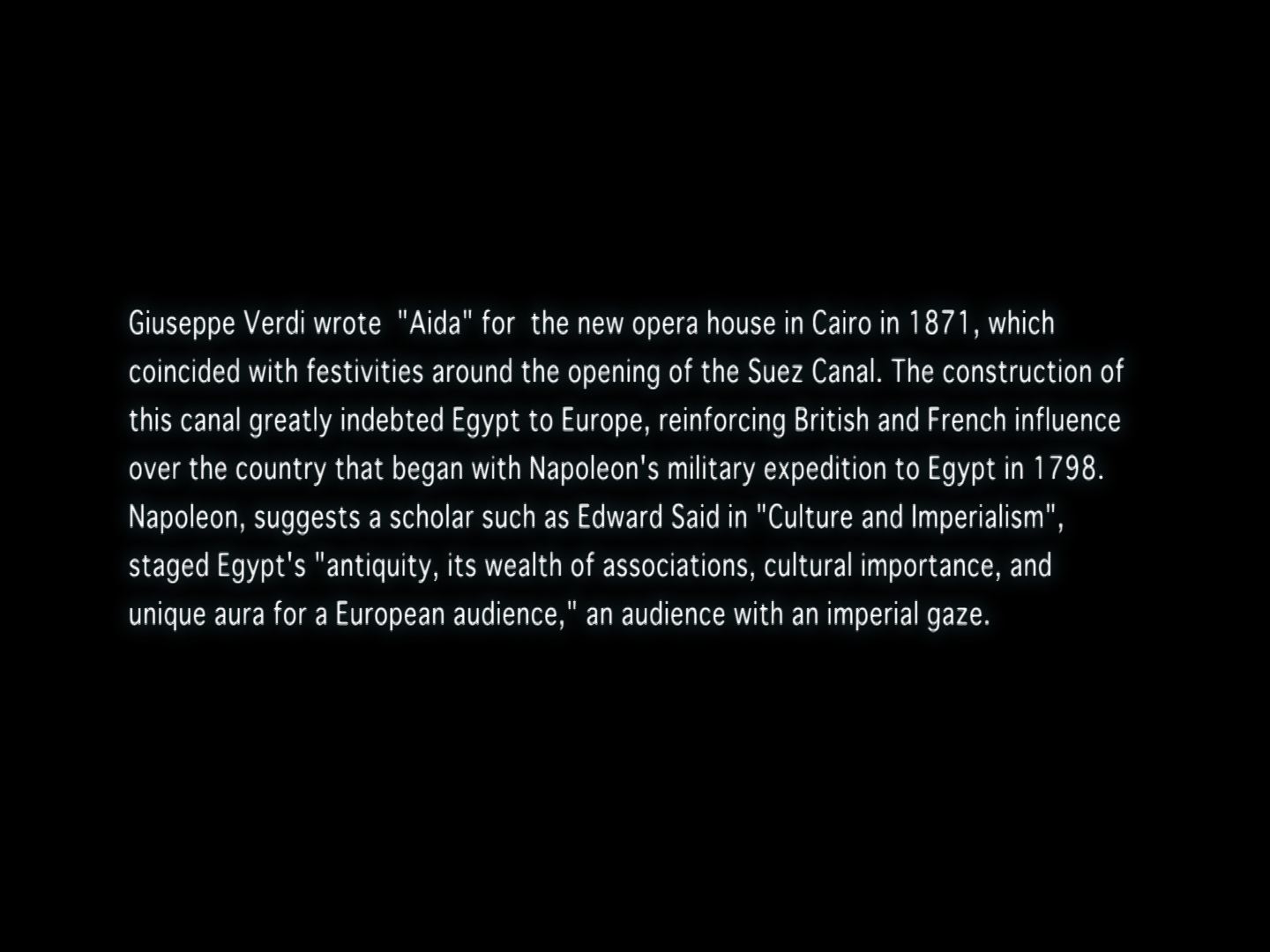
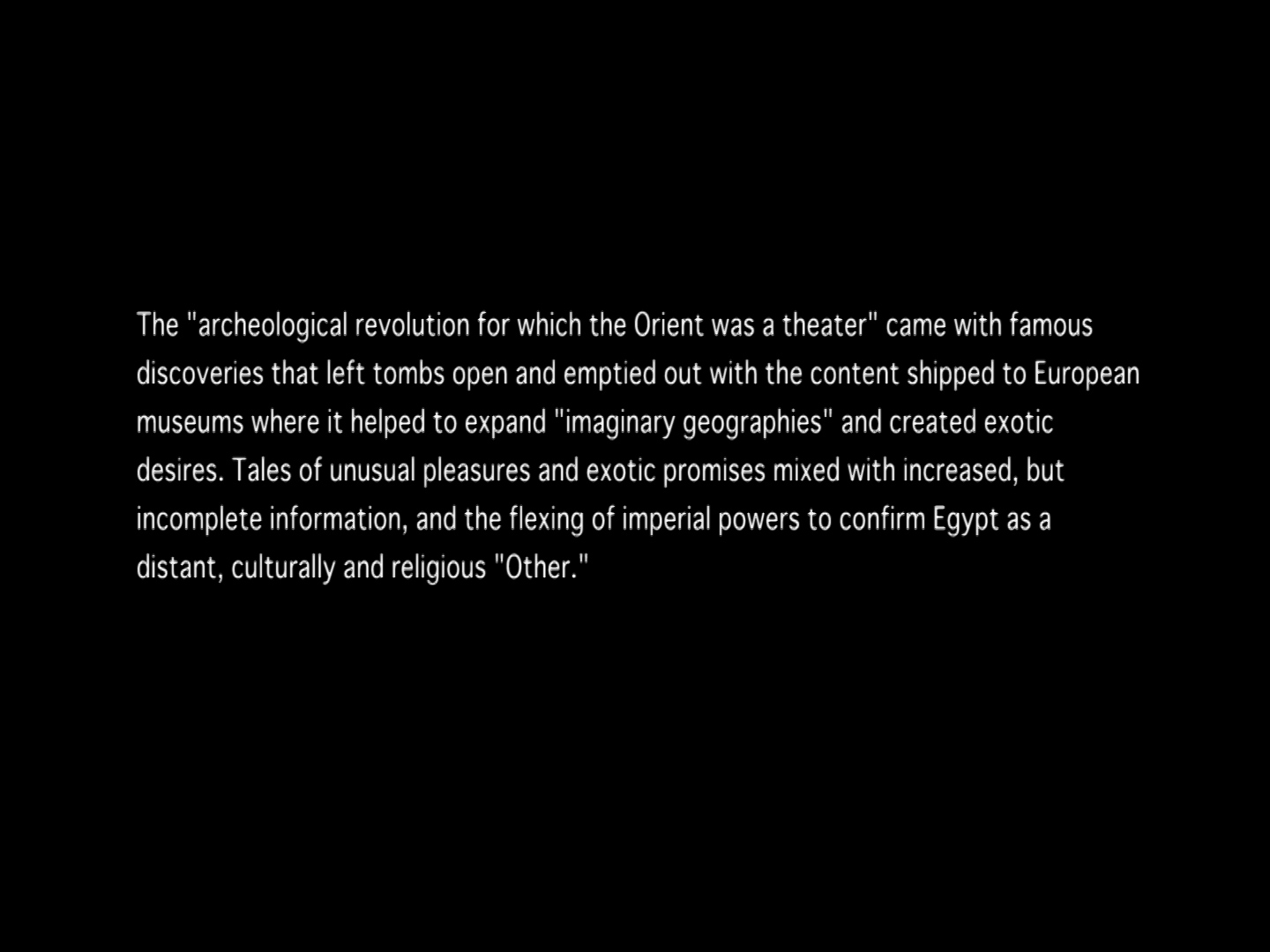
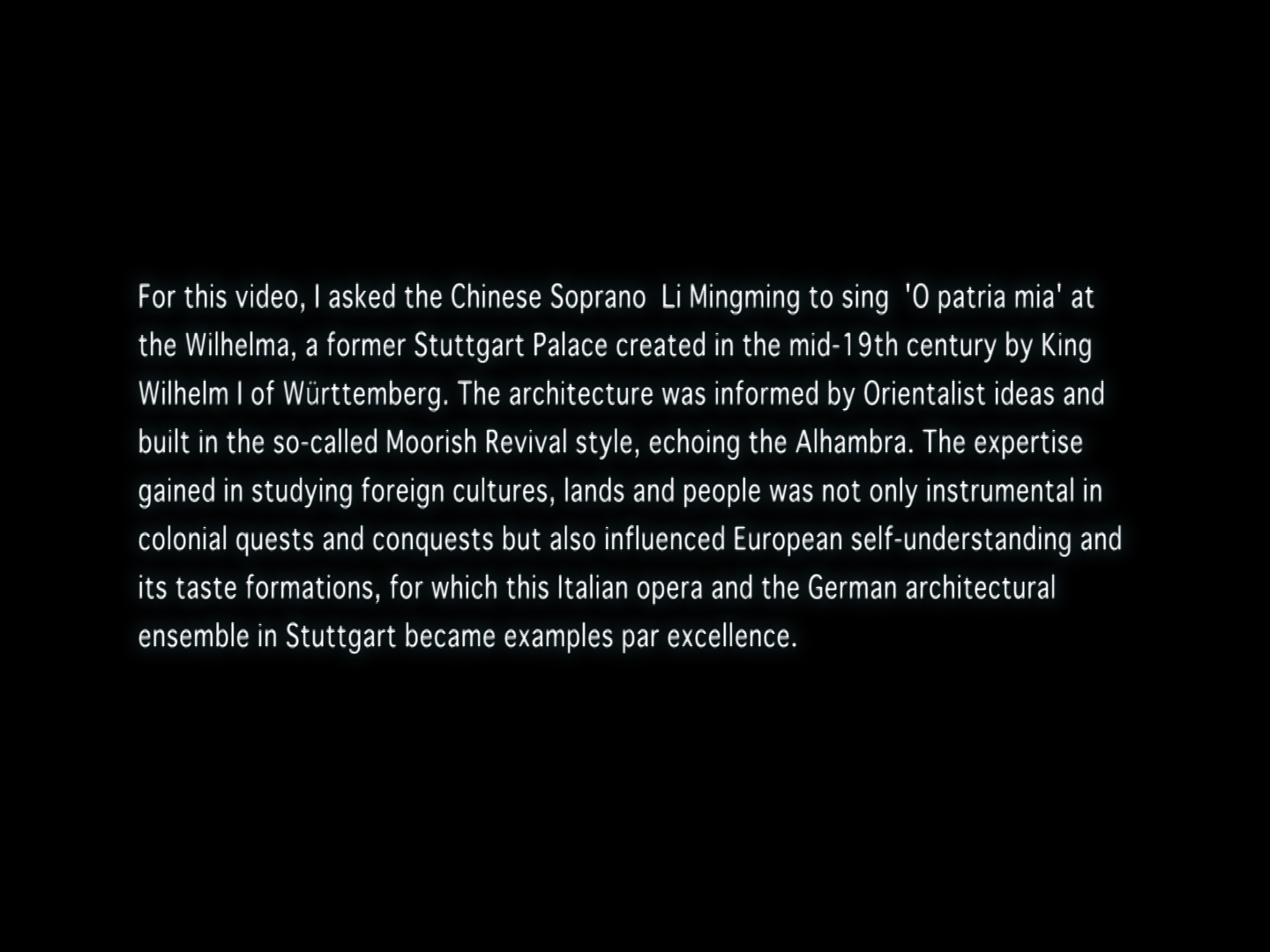
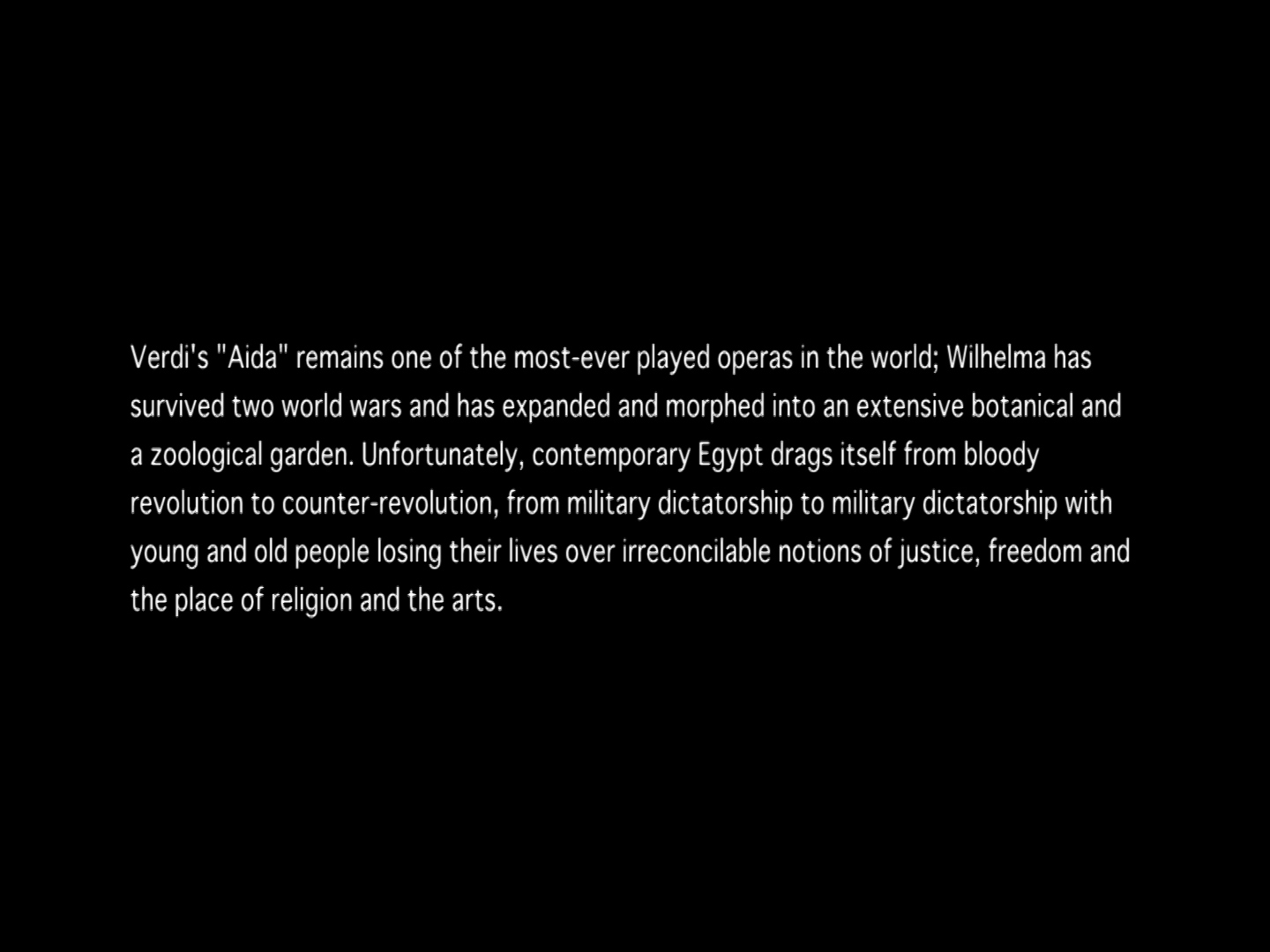
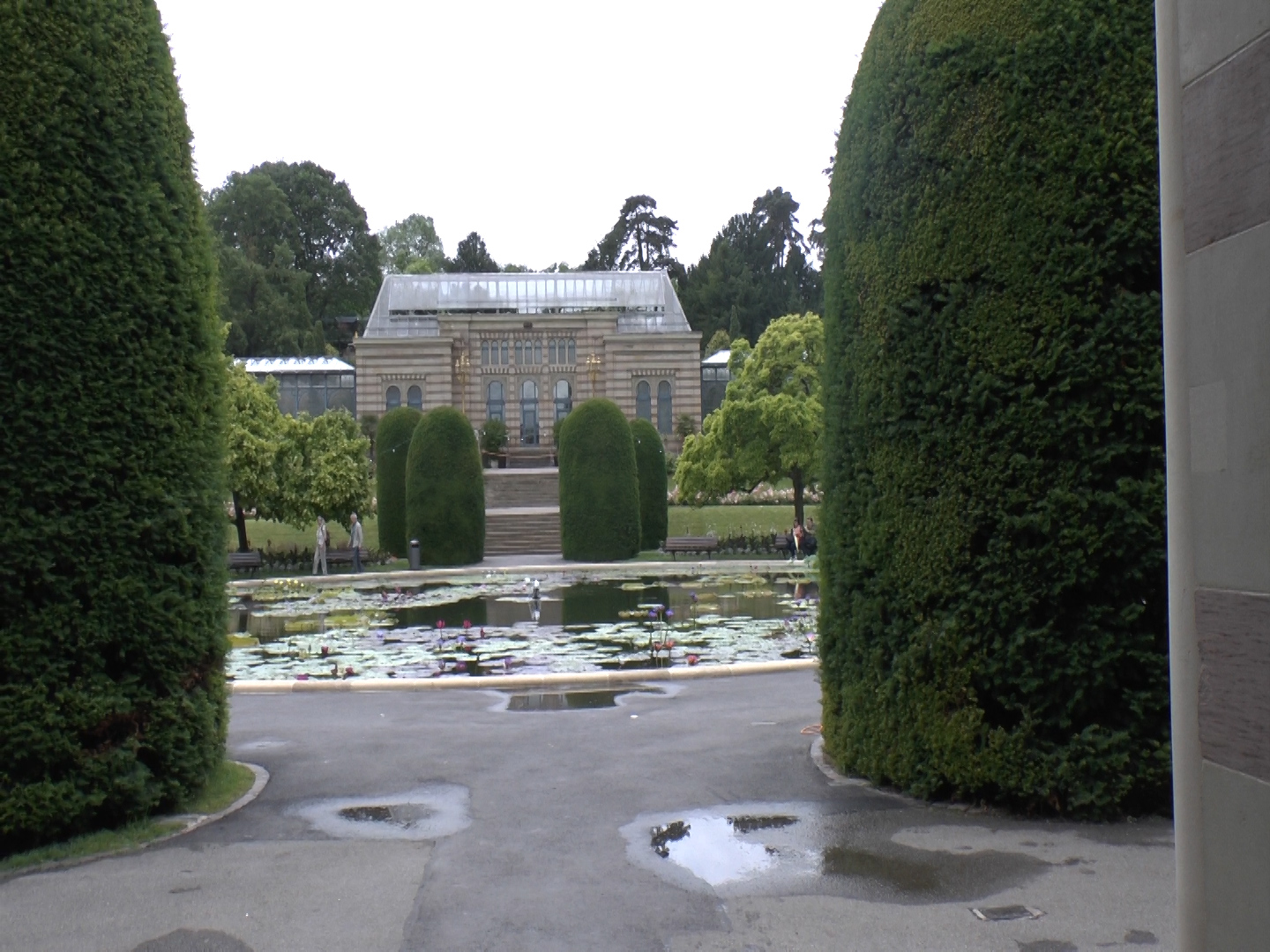
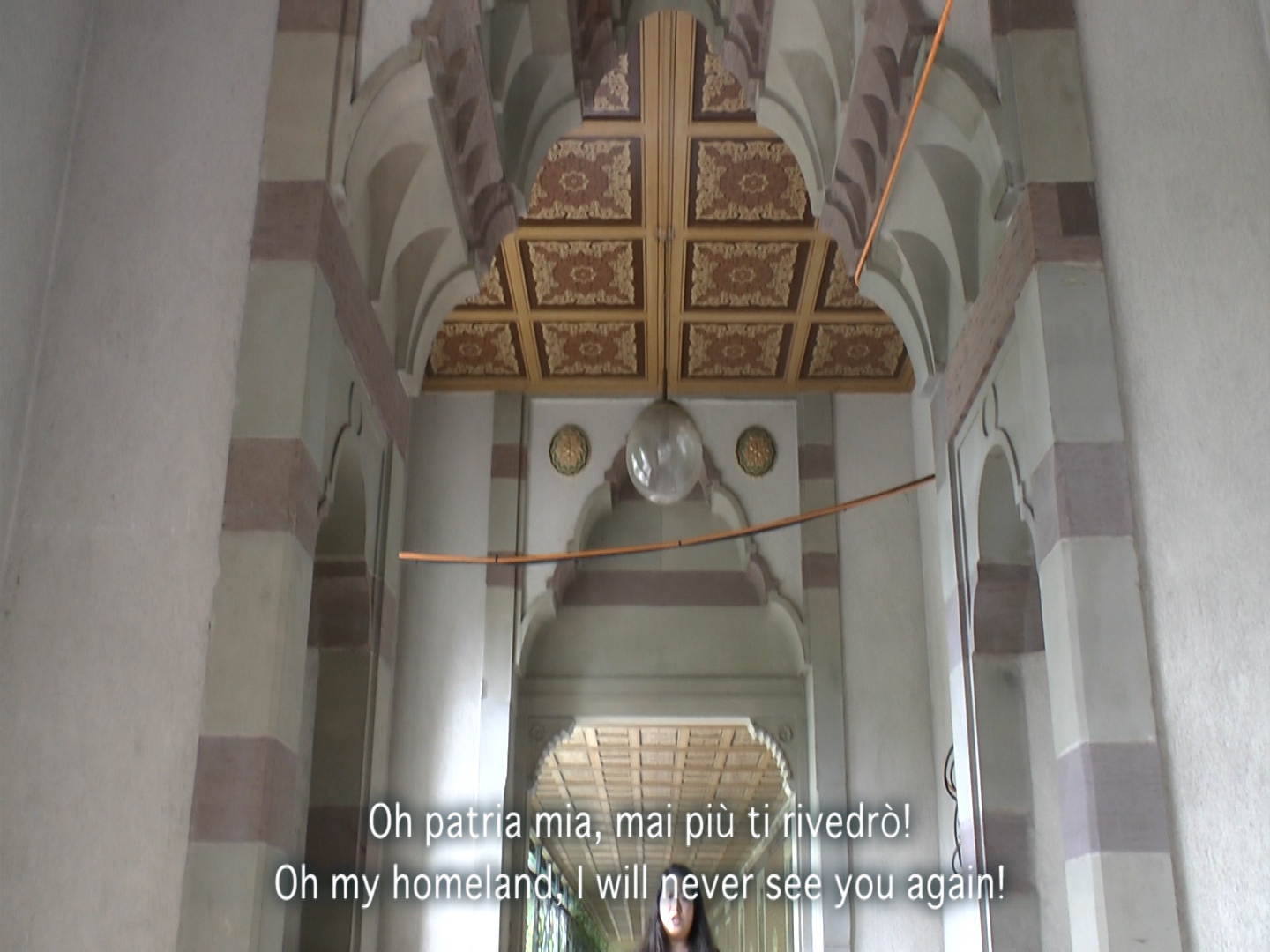
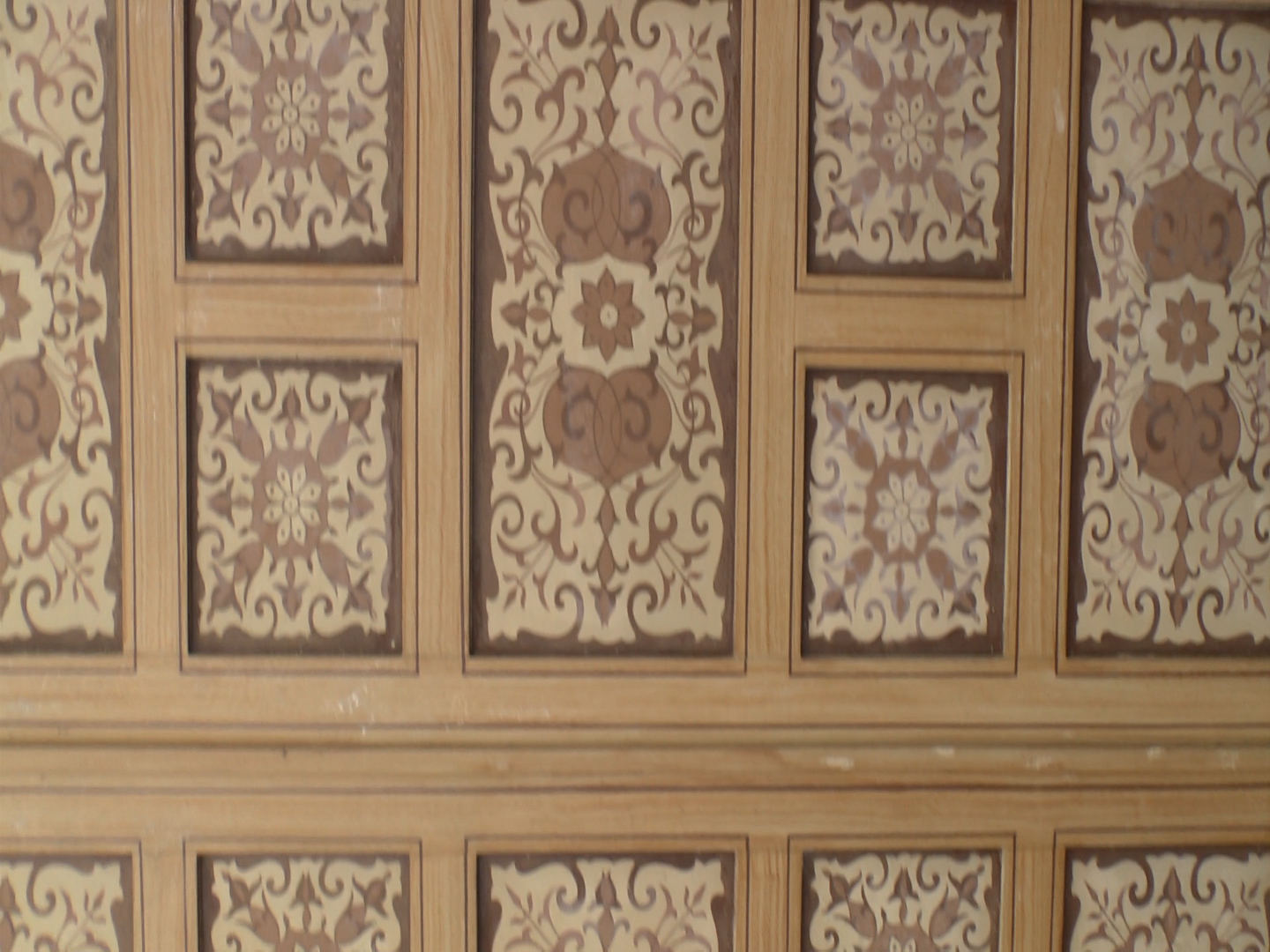
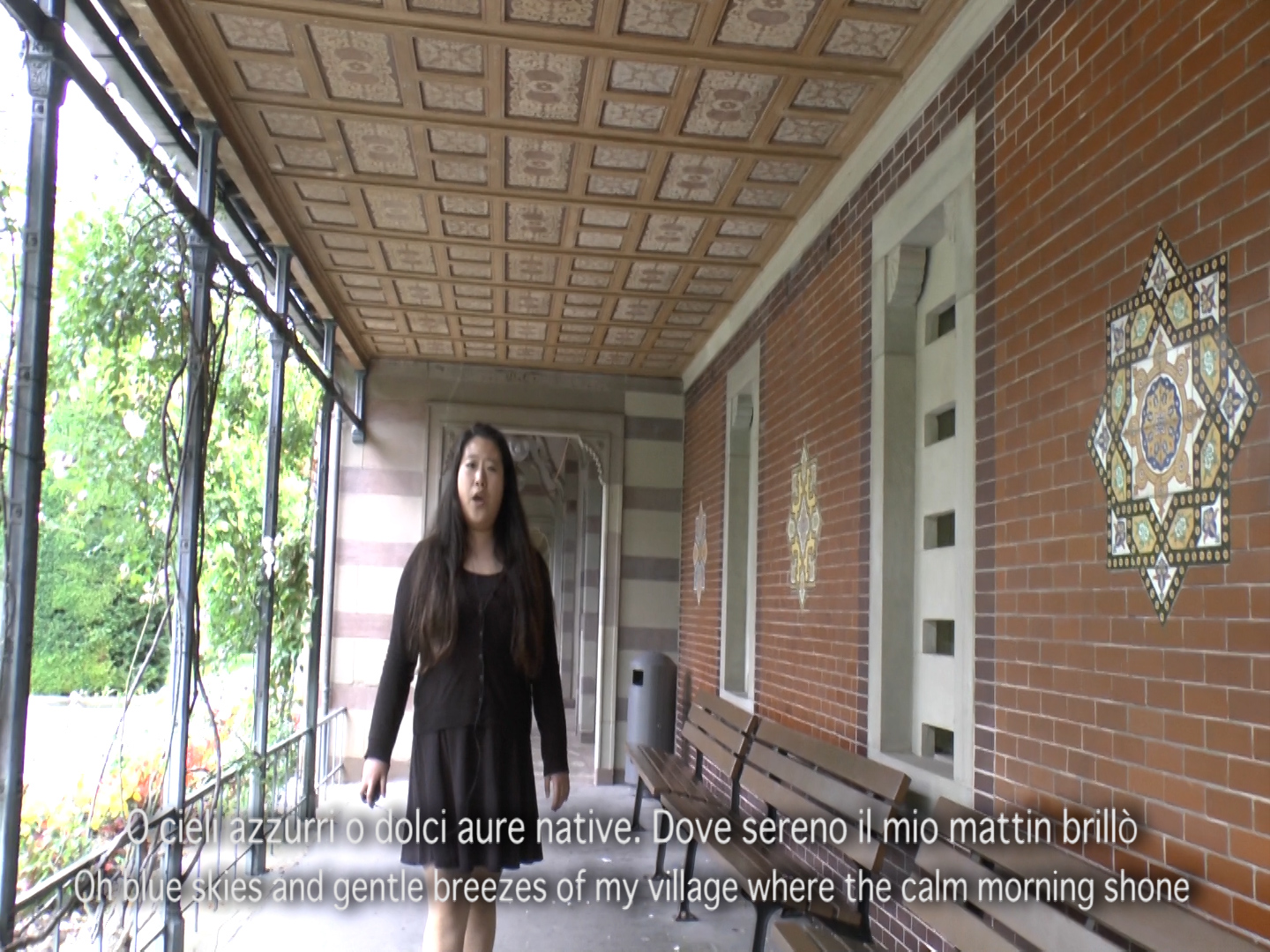
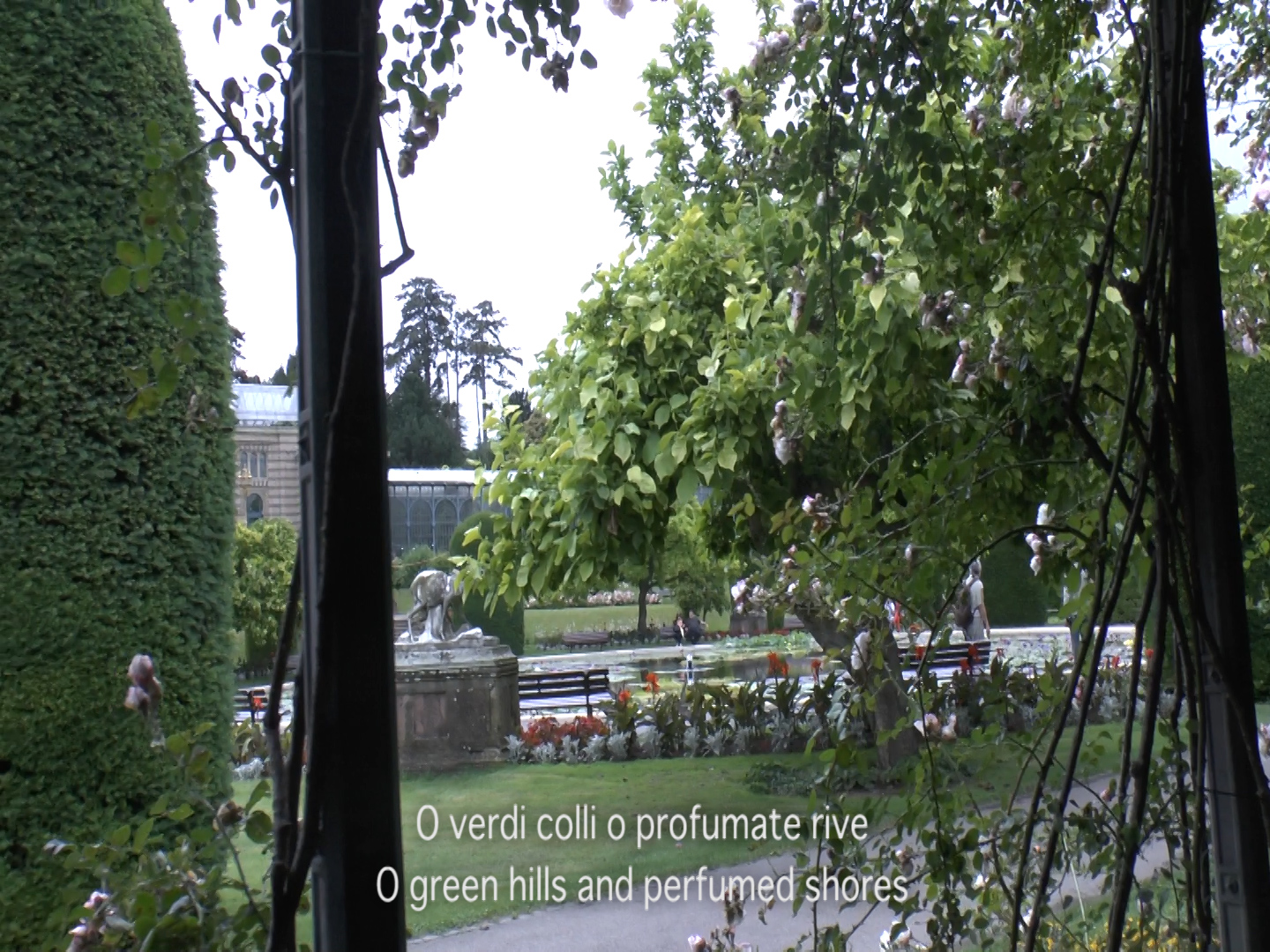
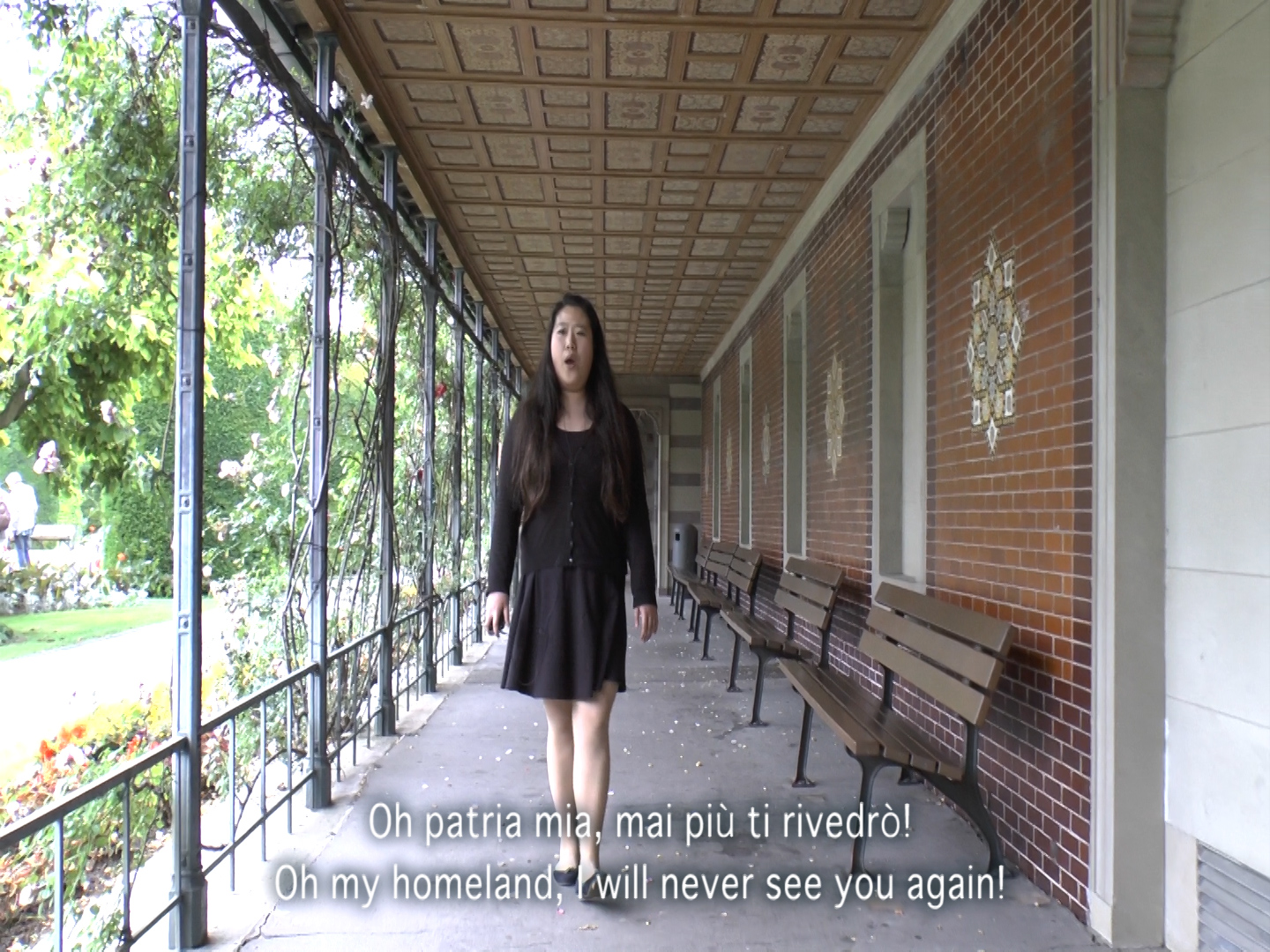
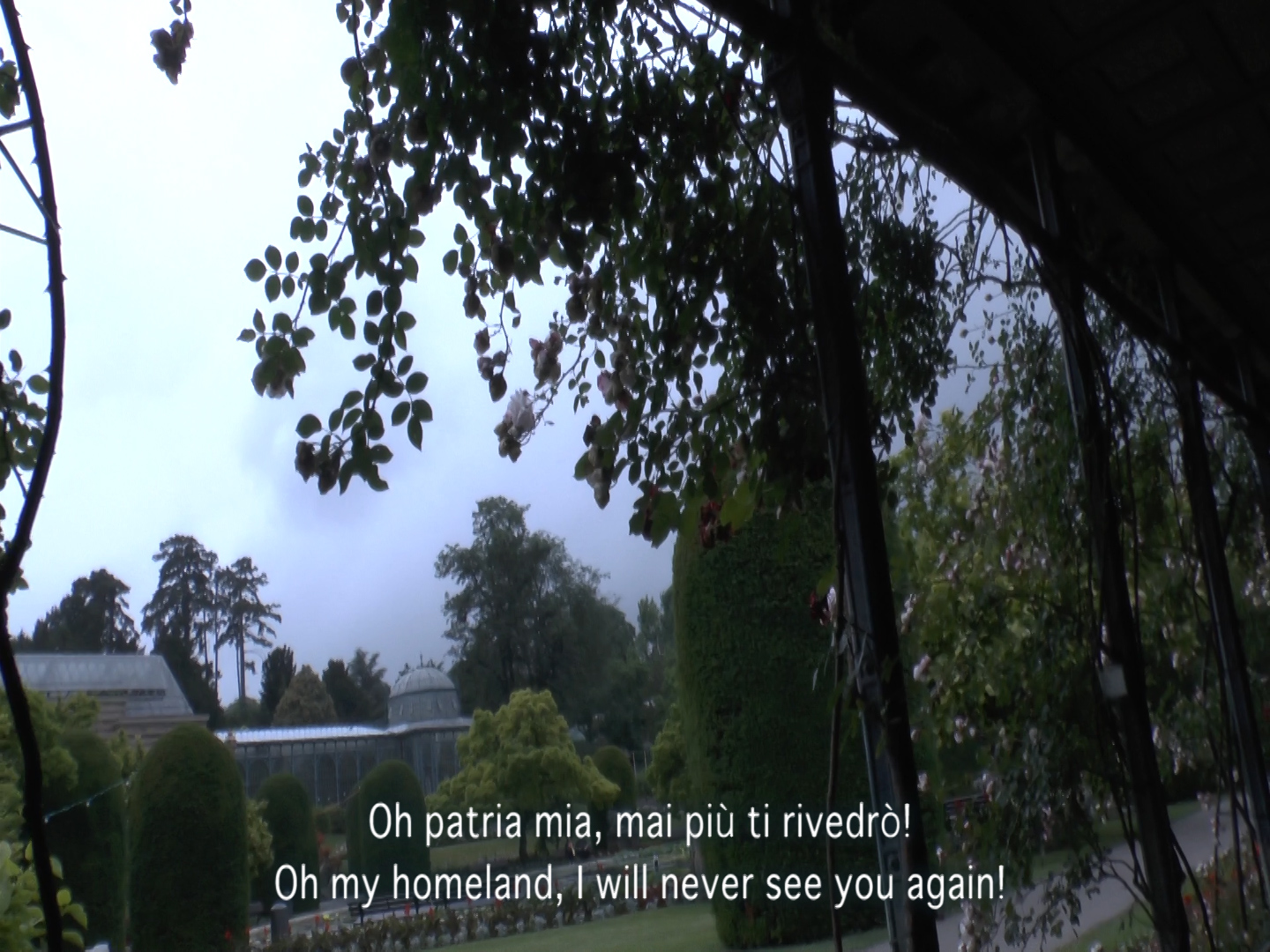

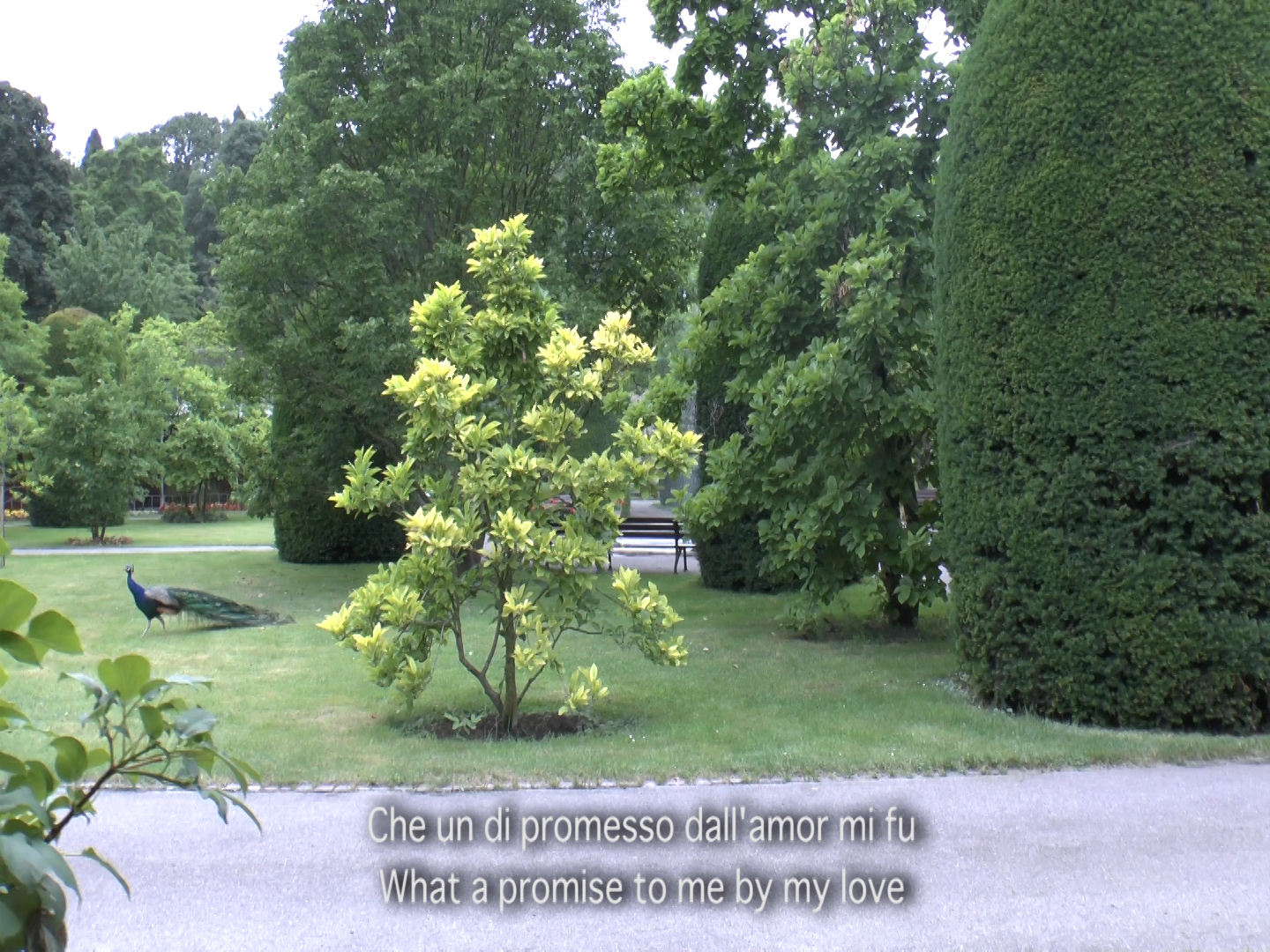
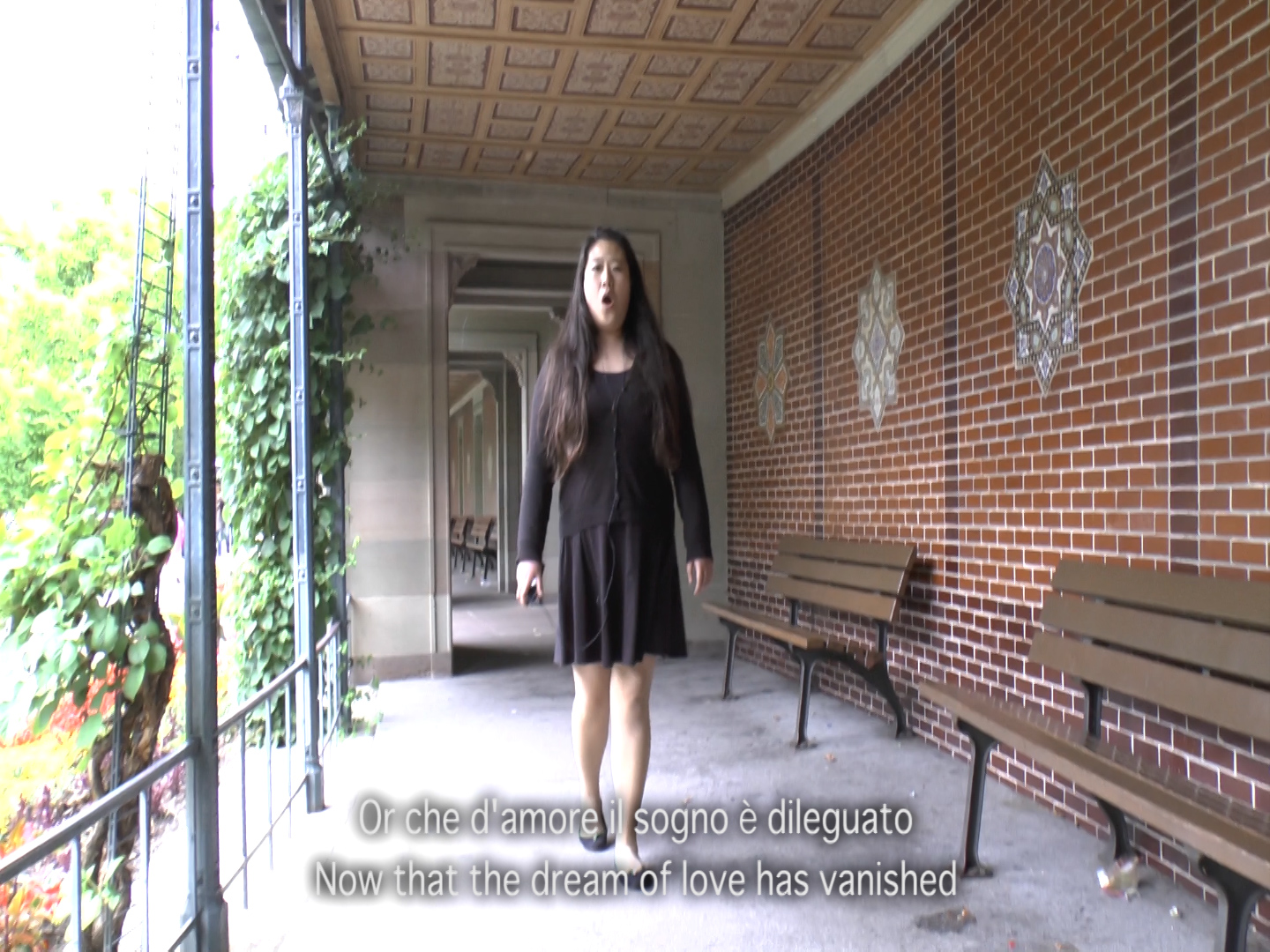
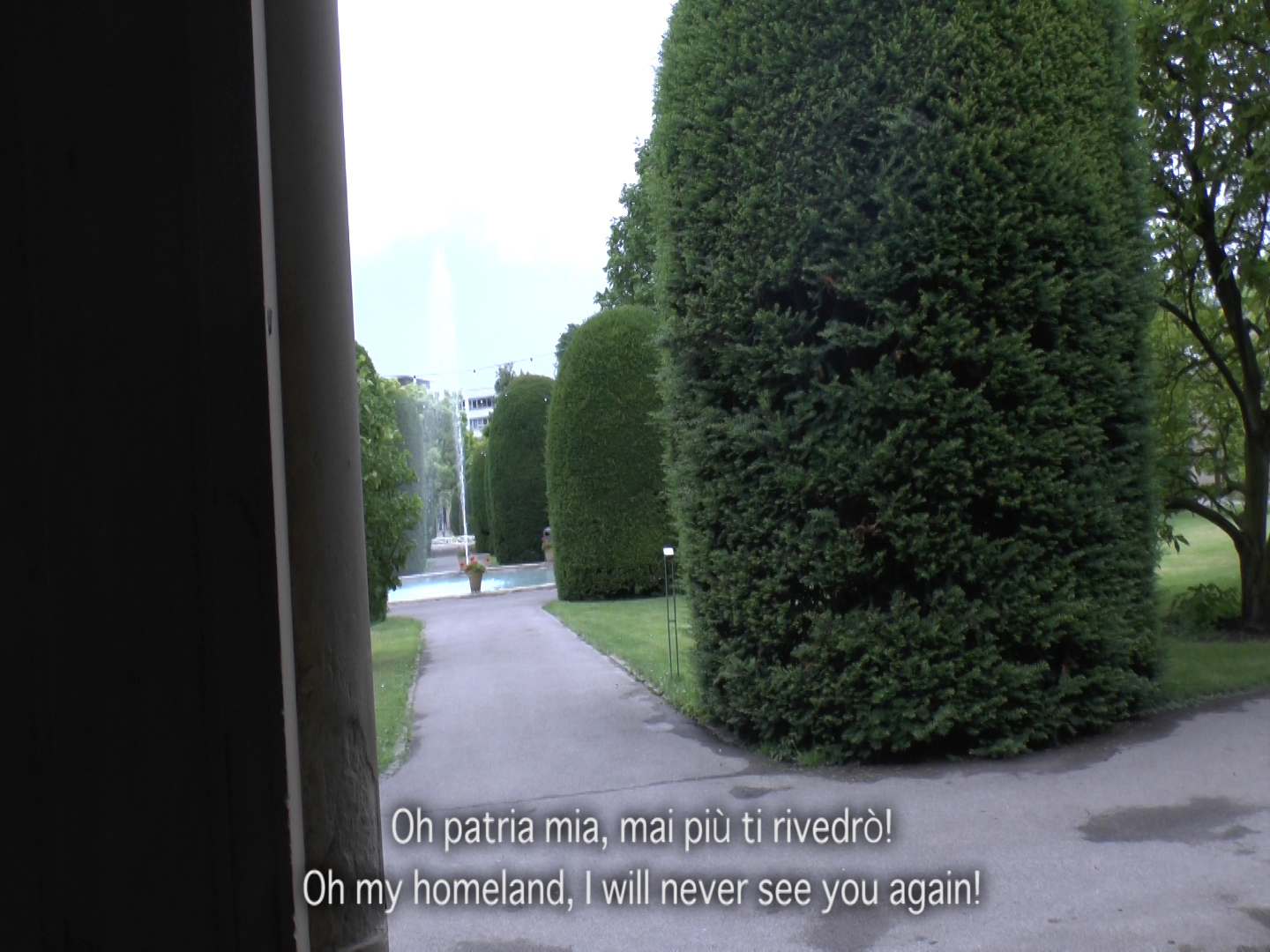
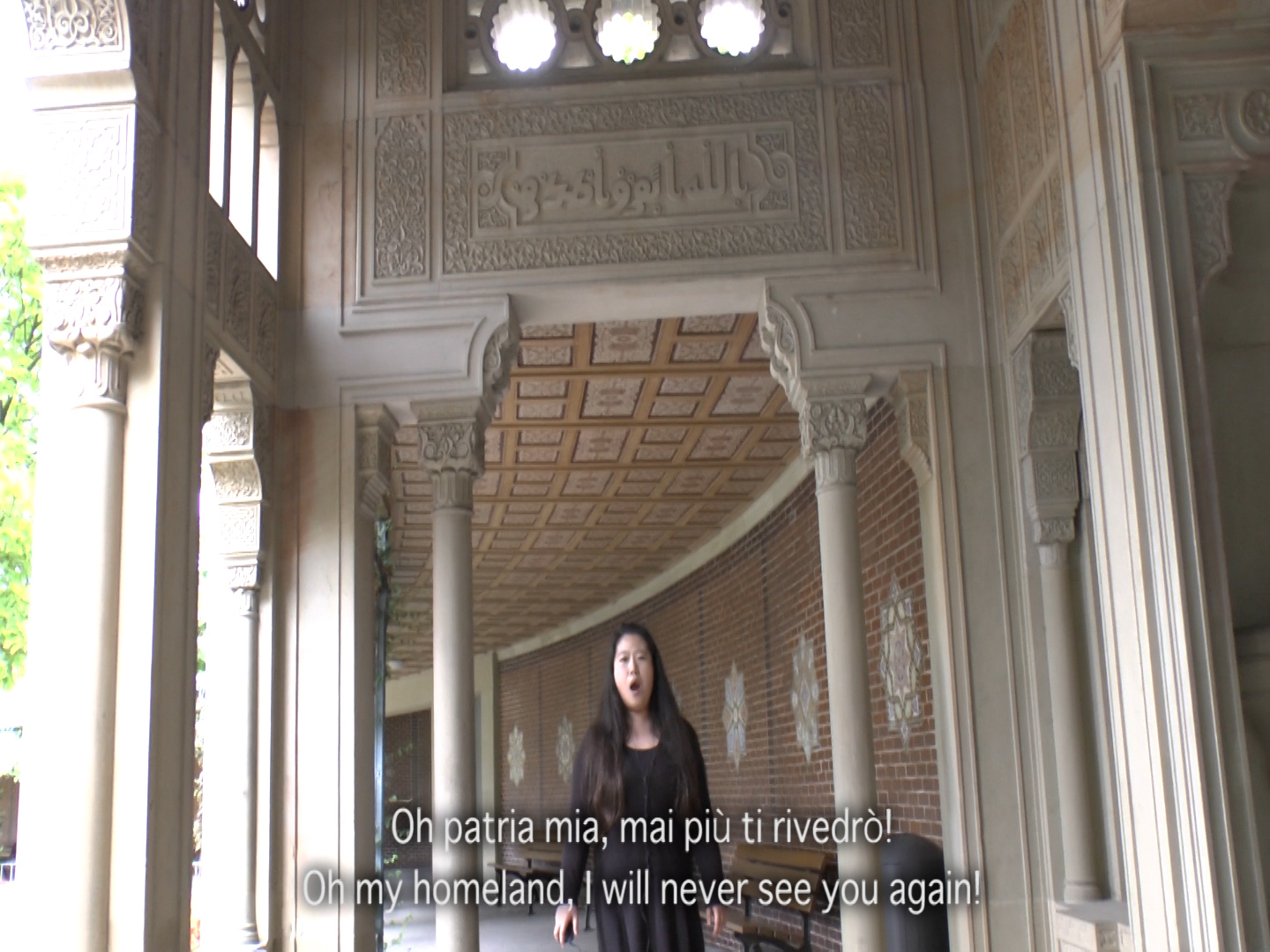
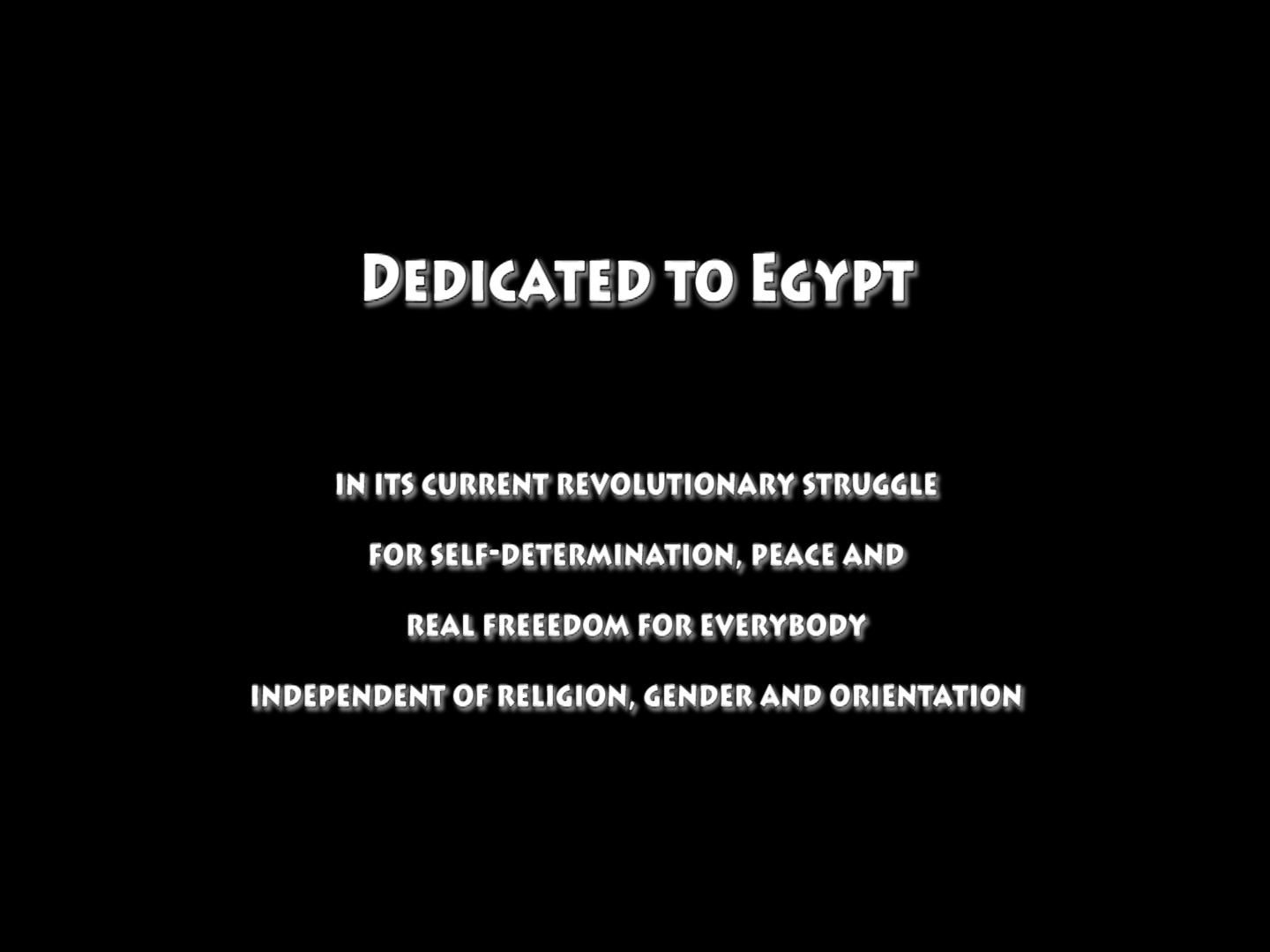
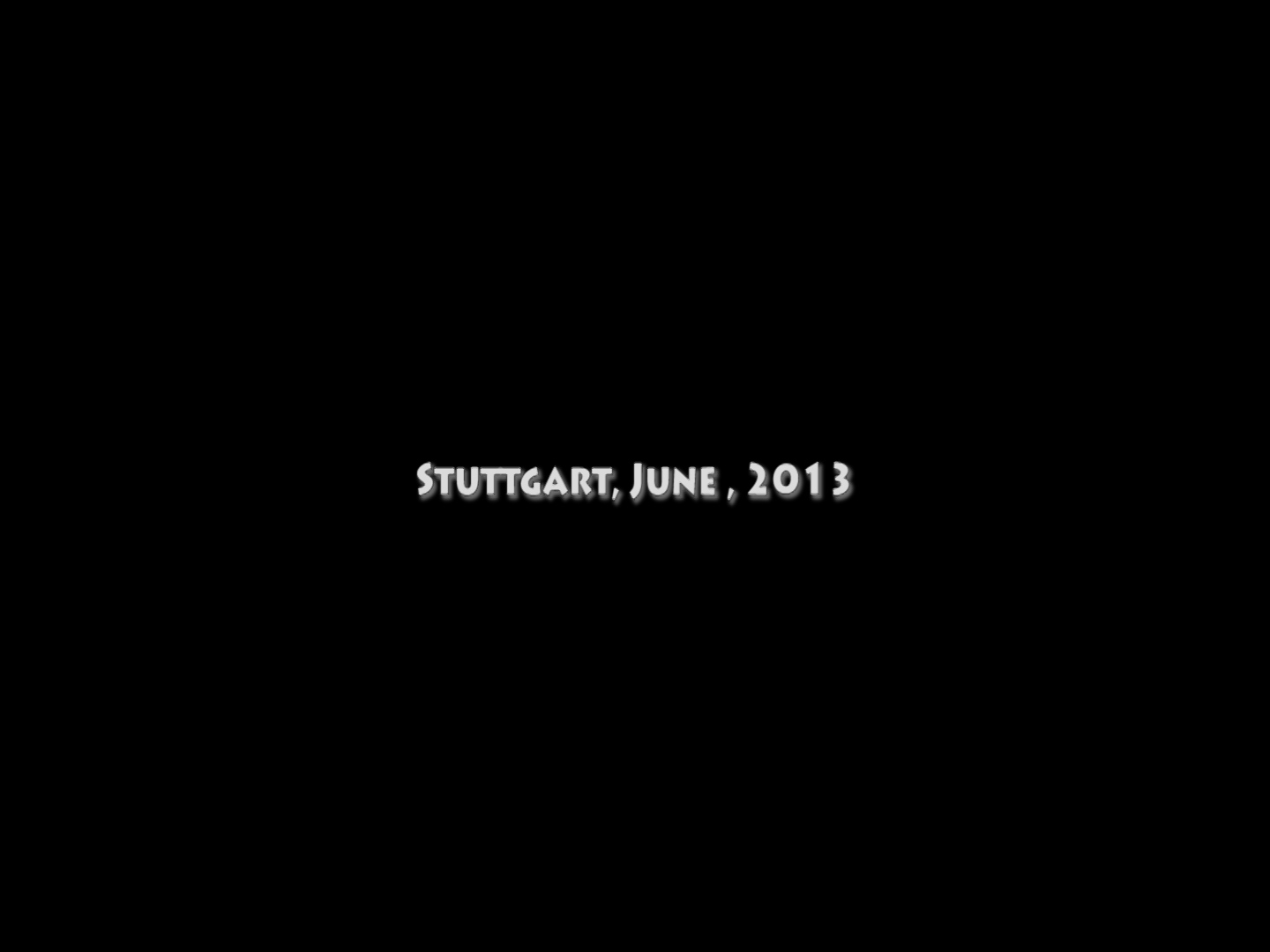
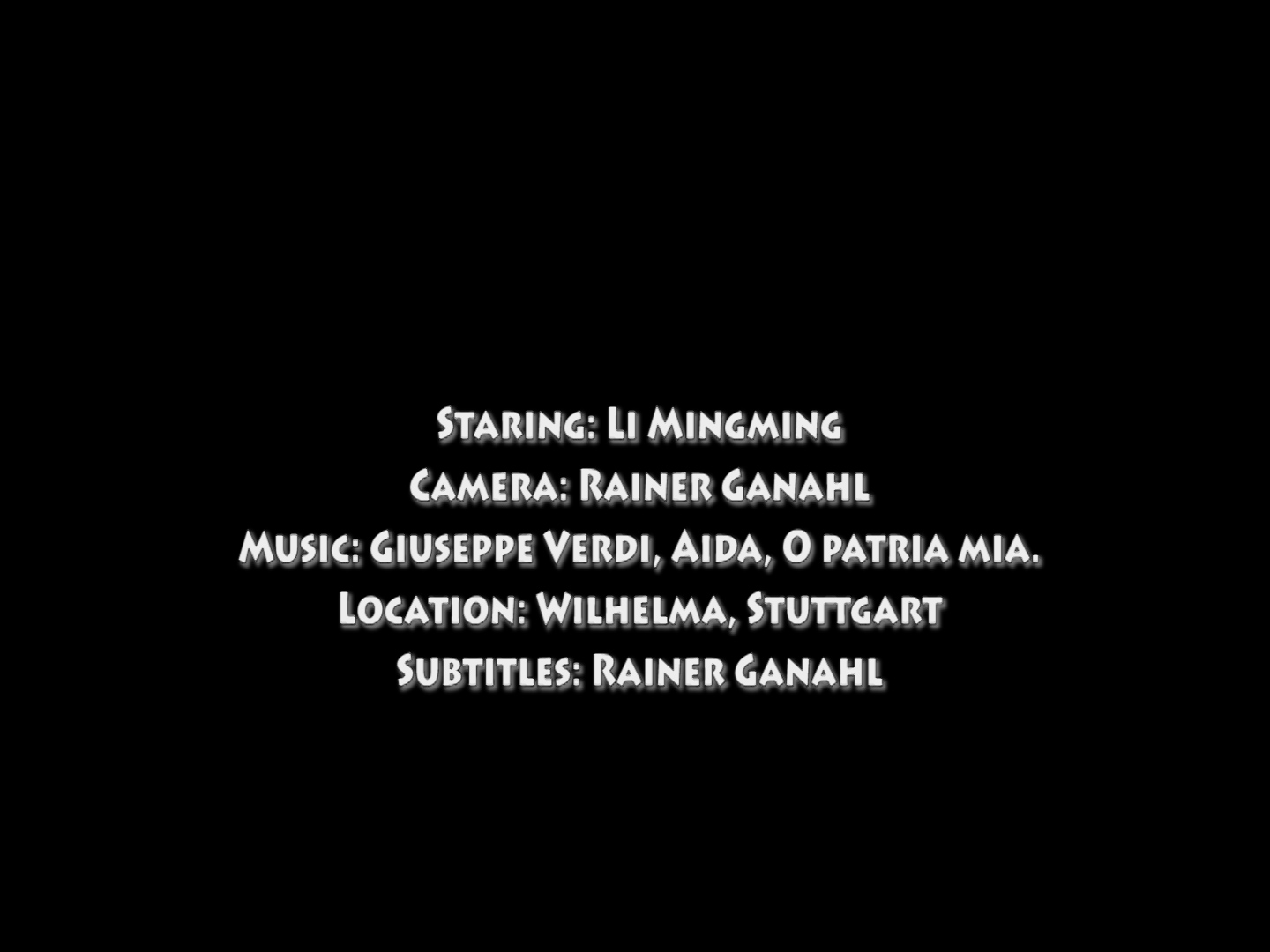
in the actual video - HDVD - the subtitles are a bit higher. I also took some view liberties in subtitling.
see video on youtube: coming soon:
(first presented at KUNSTVEREIN NEUHAUSEN, Der Traum des Königs, Neuhausen, near Stuttgart 2013)